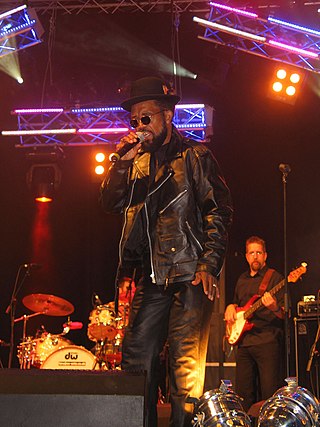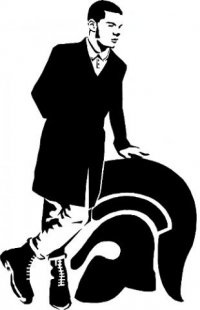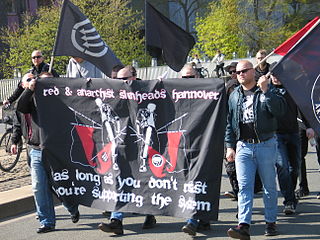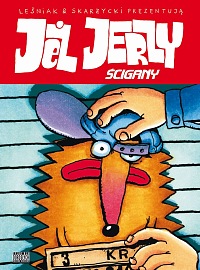External links
| Vintage subcultures | |
|---|---|
| Modern subcultures and groups | |
| Music | |
| Clothing and accessories | |
| Other topics |
|
| | This 2000s documentary film-related article is a stub. You can help Wikipedia by expanding it. |
Skinhead Attitude is a 2003 documentary about the skinhead subculture, made by Daniel Schweizer (who also directed the films White Terror and Skin or Die).
It outlined the history of 40 years of the skinhead subculture, beginning with the most recent versions of the culture. One of the topics it explored is the political component, which ranged from far left to far right. The film described the transformation and radicalisation of this youth subculture.

The punk subculture includes a diverse and widely known array of ideologies, fashion, and other forms of expression, visual art, dance, literature, and film. Largely characterised by anti-establishment views, the promotion of individual freedom, and the DIY ethics, the culture originated from punk rock.

A skinhead or skin is a member of a subculture that originated among working-class youths in London, England, in the 1960s. It soon spread to other parts of the United Kingdom, with a second working-class skinhead movement emerging worldwide in the late 1970s. Motivated by social alienation and working-class solidarity, skinheads are defined by their close-cropped or shaven heads and working-class clothing such as Dr. Martens and steel toe work boots, braces, high rise and varying length straight-leg jeans, and button-down collar shirts, usually slim fitting in check or plain. The movement reached a peak at the end of the 1960s, experienced a revival in the 1980s, and, since then, has endured in multiple contexts worldwide.

Skinheads Against Racial Prejudice (SHARP) are anti-racist skinheads who oppose white power skinheads, neo-fascists and other political racists, particularly if they identify themselves as skinheads. SHARPs claim to reclaim the original multicultural identity of the original skinheads, hijacked by white power skinheads, who they sometimes deride as "boneheads".

Rude boy is a slang term for a subculture that originated from 1960s Jamaican street culture. In the late 1970s, there was a revival in England of the terms rude boy and rude girl, among other variations like rudeboy and rudebwoy, being used to describe fans of two-tone and ska. This revival of the subculture and term was partially the result of Jamaican immigration to the UK and the so-called ”Windrush” generation. The use of these terms moved into the more contemporary ska punk movement as well. In the UK and especially Jamaica, the terms rude boy and rude girl are used in a way similar to gangsta, yardie, or badman.

Anti-Racist Action (ARA), also known as the Anti-Racist Action Network, is a decentralized network of militant far-left political cells in the United States and Canada. The ARA network originated in the late 1980s to engage in direct action and doxxing against rival political organizations on the hard right to dissuade them from further involvement in political activities. Anti-Racist Action described such groups as racist or fascist, or both. Most ARA members have been anarchists, but some have been Trotskyists and Maoists.

Mod, from the word modernist, is a subculture that began in London and spread throughout Great Britain and elsewhere, eventually influencing fashions and trends in other countries, and continues today on a smaller scale. Focused on music and fashion, the subculture has its roots in a small group of stylish London-based young men and women in the late 1950s who were termed modernists because they listened to modern jazz. Elements of the mod subculture include fashion ; music and motor scooters. In the mid-1960s, the subculture listened to rock groups with mod following, such as the Who and Small Faces, after the peak Mod era. The original mod scene was associated with amphetamine-fuelled all-night jazz dancing at clubs. One notably instrumental figure in the movement's origins was British fashion designer Mary Quant.
The 20th century saw the rise and fall of many subcultures.
White power skinheads, also known as racist skinheads and neo-Nazi skinheads, are members of a neo-Nazi, white supremacist and antisemitic offshoot of the skinhead subculture. Many of them are affiliated with white nationalist organizations and some of them are members of prison gangs. The movement emerged in the United Kingdom between the late 1960s and the late 1970s, before spreading across Eurasia and North America in the 1980–1990s.

The suedehead subculture was an early-1970s offshoot of skinhead subculture in the United Kingdom and Ireland. Although sharing similarities to 1960s skinheads, suedeheads grew their hair longer and dressed more formally. Although often working class like skinheads, some had white collar jobs. A female suedehead was a sort.

In the context of the skinhead subculture, a redskin is a Marxist skinhead, who often also subscribe to anarchist views. The term combines the word red, with the word skin, which is short for skinhead. Redskins take a militant anti-fascist and pro-working class stance.
The mod revival was a subculture that started in the United Kingdom in the late 1970s and later spread to other countries. The mod revival's mainstream popularity was relatively short, although its influence lasted for decades. The mod revival post-dated a Teddy Boy revival, and mod revivalists sometimes clashed with Teddy Boy revivalists, skinhead revivalists, casuals, punks and rival gang members.

Trojan skinheads are individuals who identify with the original British skinhead subculture of the middle 1960s, when ska, rocksteady, reggae, and soul music were popular, and there was a heavy emphasis on mod-influenced clothing styles. Named after the record label Trojan Records, these skinheads identify with the subculture's Jamaican rude boy and British working class roots.
Oi! is a subgenre of punk rock that originated in the United Kingdom in the late 1970s. The music and its associated subculture had the goal of bringing together punks, skinheads, and other disaffected working-class youth. The movement was partly a response to the perception that many participants in the early punk rock scene were, in the words of The Business guitarist Steve Kent, "trendy university people using long words, trying to be artistic... and losing touch."

This Is England is a 2006 British drama film written and directed by Shane Meadows. The story centres on young skinheads in England in 1983. The film illustrates how their subculture, which has its roots in 1960s West Indies culture, especially ska, soul, and reggae music, became influenced by the far-right, especially white nationalists and white supremacists, which led to divisions within the skinhead scene. The film's title is a direct reference to a scene where the character Combo explains his nationalist views using the phrase "this is England" during his speech.

Jeż Jerzy is a popular Polish comic book title created by two young artists, Rafał Skarżycki (script) and Tomasz Lew Leśniak (drawings).

Hardcore skinheads are skinheads who mainly associate with hardcore and sometimes heavy metal instead of Oi!, ska, soul or other music genres associated with the skinhead subculture.

Format18 was a Russian neo-Nazi group based in the city of Moscow. It was led by Maxim Sergeyevich Martsinkevich, and had close relations with the political party National Socialist Society.
Far-right subcultures refers to the symbolism, ideology and traits that hold relevance to various politically extreme right-wing groups and organisations. There are three kinds of subcultures within far-right movements to distinguish: subcultural parasitism, subcultural creation around ideology and subcultures that are networking with far-right movements, as some football hooligans did with neo-nazis.

White Right: Meeting the Enemy is a 2017 documentary film by Deeyah Khan. The film is produced by Deeyah's production company Fuuse and received its world premiere on ITV in December 2017.